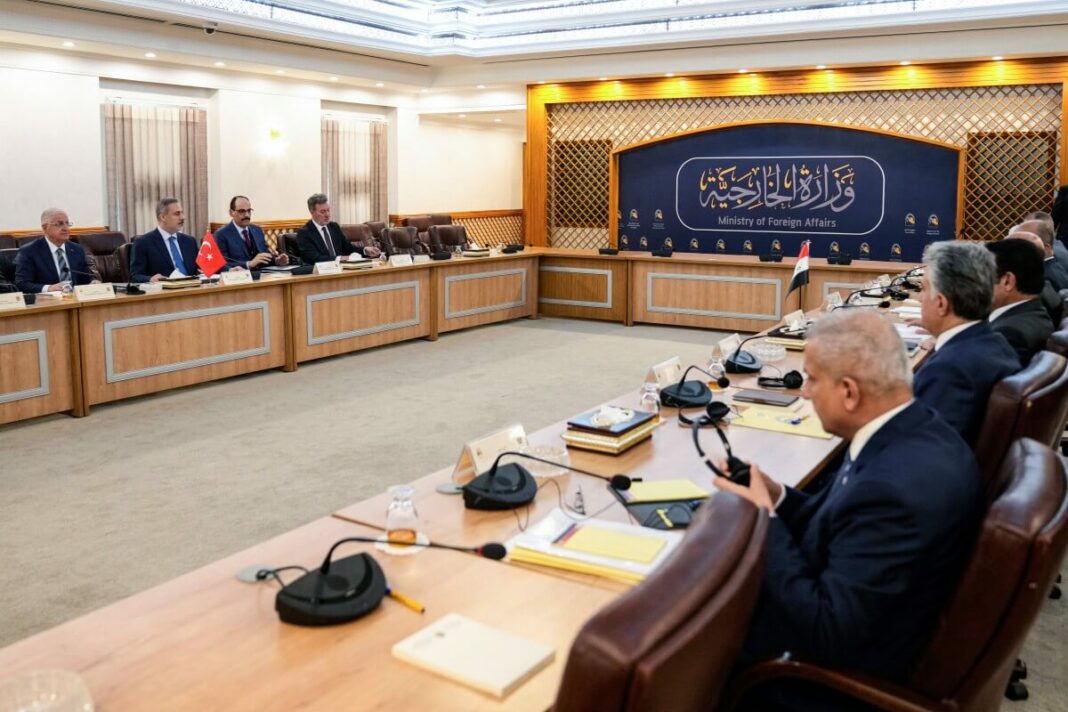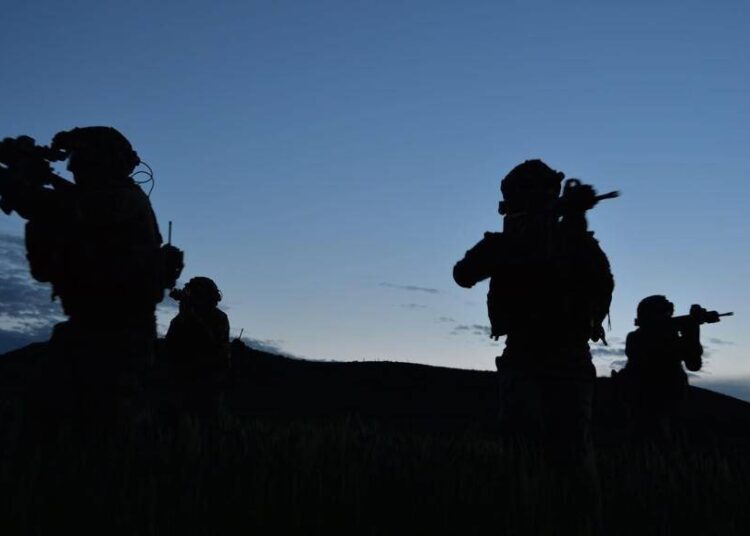Levent Kenez/Stockholm
Ankara has begun leaking information to the media regarding its intentions concerning terrorism and recent security negotiations with Iraqi authorities. On Thursday in reports attributed to officials from the Ministry of Defense, it was revealed for the first time that Turkey plans to establish buffer zones in Iraq. Turkey has attempted to create a similar secure zone in Syria.
A Turkish defense ministry official at briefing on Thursday answered questions from journalists. When asked about the possibility of establishing a joint operations center following recent talks with Iraqi authorities, the official said ongoing discussions at various levels with Iraq had progressed.
According to the official, senior Turkish and Iraqi officials, including the countries’ defense ministers, convened in Baghdad last week to discuss security matters, particularly measures against the outlawed Kurdistan Workers’ Party (PKK), which Turkey considers a terrorist organization, following Turkey’s warnings of potential military actions in the region.
The official informed reporters that Iraq perceives the PKK as a threat and responded positively to Turkey’s proposal for a joint operations center, showing a willingness to cooperate in counterterrorism efforts.
Ankara aims to incorporate the joint operations center into a broader strategic document intended for signing during Turkish President Recep Tayyip Erdogan’s visit to Baghdad in April
Discussing differences between recent operations against the PKK and those in previous years, the official emphasized changes in approach, highlighting the shift from limited, temporary operations to continuous efforts.
Addressing Turkey’s strategy in countering threats outside the country, the official stressed the importance of confronting terrorist threats farther away from the country’s borders. They mentioned ongoing discussions with Iraq involving broader issues such as energy and trade, indicating a comprehensive collaboration. The goal is to increase security and prosperity in the region simultaneously, including establishing secure zones and contributing to regional economic development.
Ankara characterized a recent PKK attack as one of the last desperate acts of the terrorist organization, emphasizing ongoing efforts to secure the border and neutralize threats, ensuring the safety and security of Turkey’s borders.
Turkey has recently been engaged in intensive diplomatic efforts in Iraq, and they are beginning to yield results. The Iraqi National Security Council took action last week by prohibiting the activities of the PKK on Iraqi soil, deeming it a threat to the country. This development comes as relations with Turkey show signs of improvement.
A high-level Turkish delegation engaged in talks in Baghdad on March 14, addressing crucial security and energy matters in anticipation of Erdogan’s upcoming visit.
The discussions in Baghdad saw the participation of Turkish Foreign Minister Hakan Fidan, Defense Minister Yaşar Güler and intelligence chief İbrahim Kalın with their Iraqi counterparts. The presence of these three in Iraq at the same time is not a common occurrence.

A joint statement following the security meeting emphasized that the presence of the PKK in Iraq, labeled a terrorist organization by Turkey and much of the international community, constitutes a violation of the Iraqi constitution. The statement also noted Turkey’s appreciation of Iraq’s decision to designate the PKK as a banned organization.
Iraqi Foreign Minister Fuad Hussein said on X that a wide array of bilateral and regional issues as well as the upcoming visit of President Erdogan were addressed during the meeting. Hussein stressed the importance of bolstering cooperation in security, trade, energy, water, education and other areas beneficial to both nations.
Relations between Turkey and Iraq have faced strains due to Turkish military operations against PKK militants in northern Iraq as well as disagreements over oil exports and the equitable distribution of water resources.
The contention over oil exports from Iraq’s autonomous Kurdistan region has been particularly contentious. After nearly a decade of seeking international arbitration, the Iraqi federal government secured recognition last year of its authority to regulate Kurdish oil exports. Ankara was subsequently ordered to compensate Iraq $1.5 billion for transporting these exports without Baghdad’s consent, leading to Ankara’s closure of the export pipeline in protest.
Turkish Foreign Ministry spokesman Öncü Keçeli expressed hope on Wednesday for the swift reopening of the pipeline. He indicated that President Erdogan would discuss the details during his visit to Iraq.
Turkey conducts military operations in Iraq as needed to combat the PKK while also maintaining several military bases in northern Iraq . Before 2018 Turkey had approximately 10 bases in northern Iraq. Today, there are numerous small bases and forward operating centers in the region. Among them, the Bashiqa Base stands out and has occasionally been the subject of controversy in the media due to being targeted by the PKK several times in 2024. However, the location and size of the other bases in Iraq are not disclosed for security reasons.












